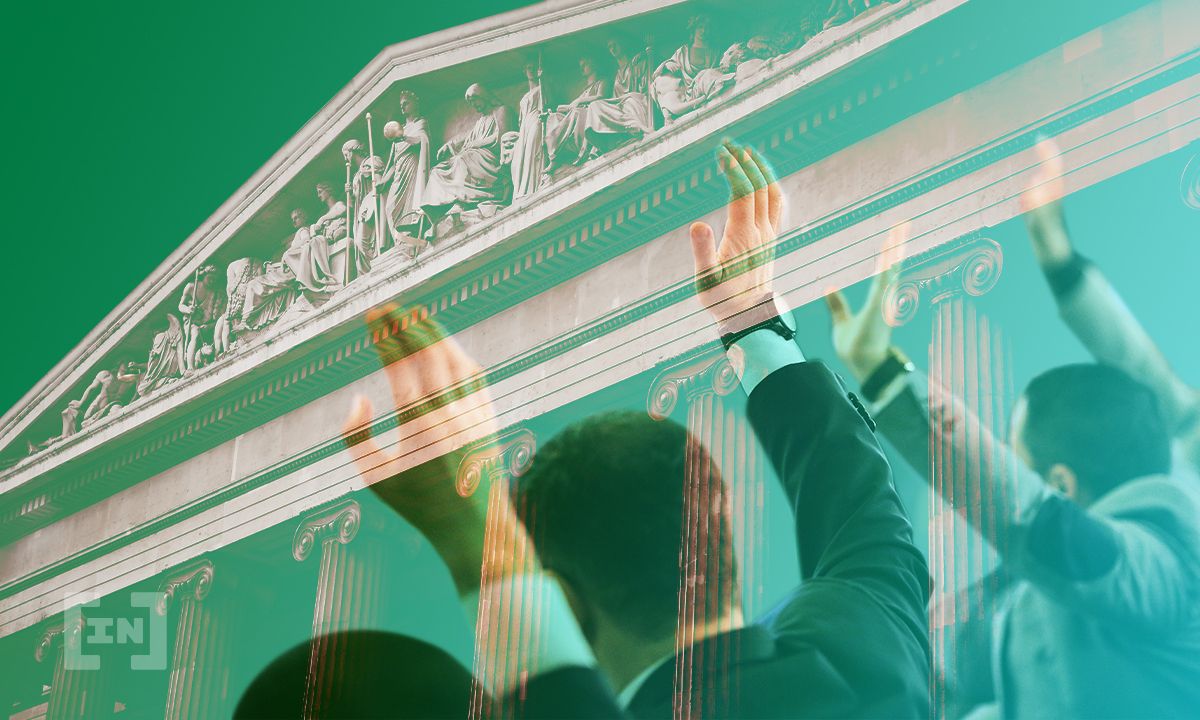Six top officials of the Swedish central bank Riksbank made millions of dollars investing in stocks and funds – gains that may have been influenced by the bank’s policy decisions during the Covid-19 crisis, a new report reveals.
Between May 2020 and October 2021, the officials, including Riksbank governor Stefan Ingves, invested a combined total of about 30 million Swedish kronas [~$3.6 million] in shares and funds, according to the report by SvD Näringsliv, a local media firm.
However, during the Covid crisis, Ingves and his team, all of whom who sit on the Riksbank’s Executive Board, made decisions that were supposedly designed to improve market functioning but ended up pumping housing prices and sent the Swedish stock market to record highs.
The decision to print new money while maintaining a cap on low-interest rates affected stock and home prices, which made the top policymakers very rich, the report alleges. It also cites the purchase of large amounts of corporate bonds by the bank as an incentive for profits realized by its officials.
Top officials get rich
Governor Ingves reaped the greatest reward in value terms, it says. His portfolio, which includes “a Swedish index fund, a short- and long-term interest rate fund and shares in more than a dozen Swedish large companies,” rose by five million kronas [~$600,000] to $24 million kronas [~$2.88 million].
Ingves took advantage of the corona crisis to shore up his equity stake in Scandinavian Airlines (SAS), which floated new shares to raise capital. The report says several companies in the governor’s portfolio benefited “from the Riksbank’s banknote press…and also from the bank’s controversial decision to – for the first time ever – buy so-called corporate bonds.”
During the review period, Riksbank bought bonds from around 60 large Swedish firms. The idea was to keep interest rates on the securities down – “thus reducing companies’ borrowing costs.” Both Ingves and his deputy Cecilia Skingsley, own shares in companies whose bonds the bank bought.
The firms include forestry company SCA, hygiene outfit Essity, industrial firm Epiroc, lock giant Assa Abloy, and engineering concern Sandvik and others.
In the case of Skingsley, the deputy Riksbank chief sold almost all of her funds for about $240,000 just before the Covid crisis. But when markets began to fall, the central bank intervened with a stimulus package that Skingsley supported, and she bought back most of her shares at a discount, for just $60,000. She has yet to declare the savings, the reported detailed.
Anna Breman, another deputy governor, continued to invest “large sums of money on the stock exchange while she voted through massive stimuli.” In total, the size of her fund savings, which mainly target sustainable development, rose nearly 40% to 1.8 million kronas [~$216,000] during the pandemic. Breman has driven Riksbank policy towards containing climate change impacts.
According to the report, other central bank governors also regularly save in funds. Deputy governor Martin Flodén owns units in eleven broad equity funds. The value of the funds rose sharply during the crisis; from1.2 million kronas [~$144,000] to 1.6 million kronas [~$192,000].
Ethics controversy
It is crucial to note that neither Ingves, Skingsley’s nor Breman’s securities trading violates the Riksbank Act. However, the practice has raised serious ethical questions, whether central bank officials should be able to trade when their policies often influence markets.
In the U.S., the Federal Reserve has been forced to set new stricter rules to curb the risk of what could loosely be interpreted as “insider trading” involving high-ranking policymakers. It banned officials and senior staff from owning individual stocks in certain companies, and neither can they invest in bonds nor derivative contracts.
Officials can still invest in broad-based securities like mutual funds, said the Fed, but the funds may not be sold for at least one year and holders must give 45 days notice before any trading. The rules also state that policymakers will not be allowed to do any business when there is “increased stress in the financial market.”
The sweeping measures come in the wake of disclosures that several Federal Reserve officials, including chairman Jerome Powell, have been trading stocks during the Covid crisis while they approved policies that pumped trillions of dollars into the U.S. economy.
The head of the Dallas Fed, Robert Kaplan, traded millions of dollars in shares of companies like Amazon and Delta Airlines. The head of the Boston Fed, Eric Rosengren, traded smaller amounts of securities that were tied to real estate, according to reports. The two regional bank presidents resigned following the news.
There were rules in the U.S. that sought to curtail this kind of ethical overreach. Now they are more tougher. It is likely Sweden will follow the same path, but nothing has happened just yet to suggest a change in the Riksbank’s legislation to limiting the ability of officials to save and borrow.
Bankers have often criticized cryptocurrencies like bitcoin, pointing to their perceived lack of intrinsic value and volatility as factors that undermine their usefulness as a means of exchange or a store of value. Bank for International Settlements (BIS) general manager Agustin Carstens, has previously said:
“If digital money is to exist, the central bank must play a pivotal role, guaranteeing the stability of value, ensuring the elasticity of the aggregate supply of such money, and overseeing the overall security of the system.” However, from the foregoing, it is clear central bankers aren’t exactly a paragon of virtue.
What do you think about this subject? Write to us and tell us!
Disclaimer
In adherence to the Trust Project guidelines, BeInCrypto is committed to unbiased, transparent reporting. This news article aims to provide accurate, timely information. However, readers are advised to verify facts independently and consult with a professional before making any decisions based on this content. Please note that our Terms and Conditions, Privacy Policy, and Disclaimers have been updated.

